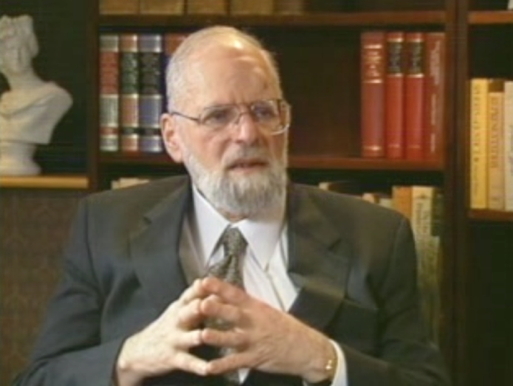Liberty Matters
Still Not Convinced
 We are picking nits now, but a brief reply to Pete’s latest comment.
We are picking nits now, but a brief reply to Pete’s latest comment.First, it’s certainly true that alertness and discovery were in the Austrian literature before Kirzner made them central to his analysis of the market process. Having written a book chapter on the history of the alertness construct[27] – which has its origins in Wieser and Hayek – I can hardly disagree. My point has been that the “mainline” of Austrian price theory from Menger to Böhm-Bawerk, Wicksteed, Fetter, Davenport, Mises, and Rothbard (and, arguably, Hayek’s business-cycle theory) has little or nothing to do with processes of convergence toward Marshallian or Walrasian equilibrium. (There is certainly adjustment, as I noted before, via the competitive process of selection among better and worse entrepreneurs.)
Second, Pete often draws a contrast between Kirzner, who he says engaged primarily with his professional peers, and contemporaries such as Henry Hazlitt, Hans Sennholz, or Murray Rothbard, who focused on public education, undergraduate teaching, or libertarian outreach. By Pete’s own measures, there is not much evidence for this. Kirzner published the exchange with Becker in the Journal of Political Economy; Rothbard published in the American Economic Review, Quarterly Journal of Economics, and American Political Science Review. Kirzner contributed three invited entries to the New Palgrave; Rothbard contributed five. (Rothbard died in 1995, two years before Kirzner published his invited paper in the Journal of Economic Literature.) The point, of course, is not to denigrate Kirzner’s professional accomplishments, but to keep the discussion focused on the merits. If Kirzner’s analysis is incorrect, incomplete, or simply unclear, it will not do to say, “He had to write it that way, given the audience he, alone among Austrians, was trying to reach.”
I’m still waiting for Pete to explain what Kirzner’s particular articulation of the market process adds to our understanding of value, exchange, production, growth, business cycles, regulation, and so on.
Endnotes
[27.] Foss, Nicolai J., and Peter G. Klein. 2010b. “Entrepreneurial Alertness and Opportunity Discovery: Origins, Attributes, Critique,” in Hans Landström and Franz Lohrke, eds., The Historical Foundations of Entrepreneurship Research (Cheltenham, U.K.: Edward Elgar), pp. 91–120.
Copyright and Fair Use Statement
“Liberty Matters” is the copyright of Liberty Fund, Inc. This material is put on line to further the educational goals of Liberty Fund, Inc. These essays and responses may be quoted and otherwise used under “fair use” provisions for educational and academic purposes. To reprint these essays in course booklets requires the prior permission of Liberty Fund, Inc. Please contact oll@libertyfund.org if you have any questions.